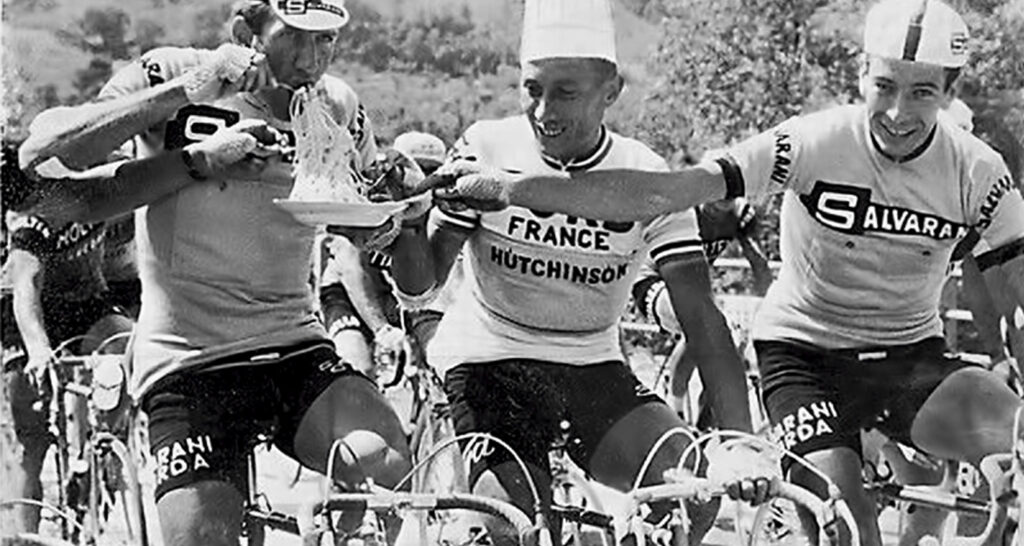In the intricate tapestry of athletic achievement, the significance of nutrition emerges as a cornerstone, shaping the trajectory of sports performance. Athletes navigated the realms of physical prowess with a basic grasp of sustenance, emphasizing the fundamental need for energy.
However, as the demands of sports intensified, so did the quest for optimal performance. The evolution of sports nutrition has witnessed transformative shifts, transcending mere sustenance to become a science that intricately tailors nutritional strategies to the demands of specific sports, individual athlete profiles, and varying training regimens.
Today, sports nutrition stands at the nexus of scientific innovation and athletic excellence, where the marriage of macro and micronutrients, precise timing, and personalized strategies form the bedrock of optimal performance. From ancient Olympians fueling with figs to the precision of modern-day nutritional science, this journey illuminates the pivotal role nutrition plays in unlocking the full potential of the athlete—an odyssey where each nutritional chapter contributes to the relentless pursuit of victory.
Historical Perspective

The historical evolution of sports nutrition traces a compelling narrative of changing paradigms and profound breakthroughs. In the early annals, athletes relied on instinct and tradition, their diets centered on basic sustenance to meet the rigors of physical exertion. The turning point came in the mid-20th century when scientific inquiry cast a discerning eye on the relationship between nutrition and athletic performance.
Key milestones marked this transformative journey, with the 1960s witnessing a surge in scientific interest. Pioneering studies explored the impact of carbohydrates on endurance, reshaping dietary recommendations. The 1980s ushered in the era of personalized nutrition, recognizing individual differences in metabolic responses. As sports science advanced, so did the understanding of protein’s role in muscle repair, leading to the widespread adoption of protein supplementation.
The late 20th century heralded a paradigm shift, with sports nutrition evolving into a specialized discipline. Athletes now benefit from tailored strategies, optimizing nutrient intake based on sport, training phase, and individual goals. Today, the landscape is dotted with innovations—from energy gels to precision hydration plans—each representing a milestone in the dynamic saga of sports nutrition. This historical exploration unveils a continuum where ancient wisdom meets cutting-edge science, illustrating the profound impact of nutrition in unlocking athletic potential across centuries.
Fundamental Principles

At the core of sports nutrition lie fundamental principles that intricately weave together the tapestry of athletic performance and overall well-being. Macronutrients, encompassing carbohydrates, proteins, and fats, stand as the pillars of energy provision. Carbohydrates, sourced from grains, fruits, and vegetables, emerge as the primary fuel for the active body, supplying the glucose necessary for immediate energy demands during exercise.
Proteins, derived from sources like lean meats, legumes, and dairy, serve as the architects of muscle repair and growth. Crucial in the post-exercise recovery phase, proteins aid in rebuilding tissues stressed during physical exertion, fostering resilience and strength.
Fats, sourced from avocados, nuts, and oils, serve as a sustained energy reservoir, particularly during prolonged endurance activities. Their role extends beyond energy provision, encompassing vital functions such as hormone regulation and nutrient absorption.
Complementing these macronutrients, micronutrients—vitamins and minerals—act as catalysts in numerous physiological processes. From the bone-strengthening prowess of calcium to the immune-boosting effects of vitamin C, each micronutrient plays a nuanced role in ensuring holistic health and fortifying the athlete against the rigors of training. Understanding and integrating these fundamental principles form the bedrock of sports nutrition, creating a nutritional blueprint that not only fuels performance but sustains the enduring vitality of the athlete.
Hydration Strategies

Proper hydration emerges as a linchpin for optimal performance and overall well-being. Delving into the nuances of hydration strategies unveils its pivotal role in sustaining physiological functions crucial for athletic success. Adequate fluid intake, tailored to individual needs and environmental conditions, is paramount in preventing the deleterious effects of dehydration.
Optimal hydration extends beyond water consumption, encompassing the delicate balance of electrolytes. Electrolytes, including sodium, potassium, and chloride, play a crucial role in nerve impulses, muscle contractions, and fluid balance. Athletes, particularly those engaging in prolonged or intense activities, benefit from strategically replenishing electrolytes to prevent imbalances that can compromise performance and lead to conditions like hyponatremia.
The impact of dehydration on performance is profound, affecting endurance, strength, and cognitive function. Even mild dehydration can impair thermoregulation and reduce exercise capacity. Understanding individual sweat rates, environmental factors, and the art of preemptive hydration are integral components of a comprehensive strategy.
Hydration is not merely a routine but a strategic imperative in the athlete’s toolkit, ensuring that each drop of fluid contributes to the resilience, endurance, and vitality demanded by the relentless pursuit of athletic excellence.
Pre-Workout Nutrition

Pre-workout nutrition stands as the precursor to athletic feats, demanding a meticulous approach to fuel the body for optimal performance. Guidelines for this critical phase involve a strategic interplay of macronutrients, with a primary focus on carbohydrates as the primary energy source. Consuming complex carbohydrates, such as whole grains and fruits, provides a sustained release of glucose, ensuring a steady stream of energy throughout the training session or competition.
Protein assumes a pivotal role in pre-workout nutrition, contributing to muscle support and repair. Incorporating lean protein sources, like poultry or yogurt, helps prime the body for the upcoming physical demands. The timing of pre-workout nutrition is equally crucial, balancing the need for adequate fuel without causing discomfort. Consuming a well-rounded meal approximately 2-3 hours before exercise allows for optimal digestion, while a smaller snack 30-60 minutes prior provides a readily available energy boost.
Considering individual preferences and tolerances, this strategic approach to pre-workout nutrition becomes a personalized ritual, ensuring that each athlete steps onto the field, track, or gym floor with a well-nourished body ready to unleash its full potential.
Post-Workout Nutrition

Post-workout nutrition emerges as the cornerstone of recovery, heralding a vital period where the body craves replenishment and repair. Understanding the importance of recovery nutrition unveils a strategic approach that optimizes the body’s ability to bounce back from exertion and lays the foundation for future performance.
The post-workout window of opportunity, often referred to as the “anabolic window,” is a critical phase where nutrient intake can profoundly influence recovery. Within 30 minutes to an hour after exercise, the body’s capacity to absorb nutrients is heightened, making this timeframe optimal for replenishment. Prioritizing protein intake during this period becomes paramount, as it catalyzes muscle repair and growth. Lean protein sources, such as poultry, eggs, or plant-based alternatives, supply essential amino acids crucial for post-exercise recovery.
Carbohydrates play a complementary role, aiding in the restoration of glycogen stores depleted during exercise. Incorporating complex carbohydrates, such as whole grains or fruits, ensures a sustained release of energy while promoting efficient glycogen replenishment.
Post-workout nutrition transcends routine consumption; it becomes a strategic ritual that fosters resilience, supports muscle recovery, and sets the stage for future athletic triumphs.
Supplements

Supplements in sports nutrition have become integral components of many athletes’ regimens, offering targeted support to enhance performance, recovery, and overall well-being. Exploring common supplements unravels a nuanced understanding of their roles, efficacy, safety considerations, and appropriate usage.
Protein powders, often derived from whey, casein, or plant-based sources, serve as convenient options to meet elevated protein requirements for muscle repair and growth. Their efficacy lies in providing a concentrated and readily absorbable source of essential amino acids, especially in post-workout scenarios.
Creatine, a naturally occurring compound in the body, has garnered widespread popularity for its role in enhancing strength and power. Backed by extensive research, creatine is considered safe and effective for improving high-intensity exercise performance, particularly in activities like weightlifting and sprinting.
Branched-chain amino acids (BCAAs), comprising leucine, isoleucine, and valine, are heralded for their potential to reduce muscle soreness and support muscle protein synthesis. While their efficacy is evident in certain contexts, their benefits may be more pronounced during endurance activities or training in a fasted state.
Supplements require informed decision-making. Understanding their efficacy, and potential side effects, and aligning usage with individual goals and circumstances ensures that supplements become valuable allies in the pursuit of athletic excellence, without compromising safety or long-term well-being.
Nutrition and Endurance vs. Strength Training

Divergent athletic pursuits demand tailored nutritional strategies, distinguishing between the nuanced needs of endurance athletes and those engaged in strength training. For endurance athletes, the emphasis lies in optimizing sustained energy levels and mitigating the risk of glycogen depletion during prolonged activities. Carbohydrates assume a central role, with recommendations often leaning towards higher carbohydrate intake to fuel extended efforts. Incorporating complex carbohydrates, such as whole grains and fruits, becomes crucial to sustaining energy over prolonged periods.
In contrast, strength training necessitates a nuanced approach, focusing on protein to support muscle repair and growth. Adequate protein intake is paramount for individuals engaging in resistance exercises, promoting the synthesis of new muscle tissue. While carbohydrates remain essential to support overall energy demands, the emphasis shifts towards protein-rich sources, such as lean meats, dairy, or plant-based alternatives.
Understanding these nuances allows athletes to fine-tune their nutritional strategies, aligning dietary choices with the specific demands of their chosen discipline. Whether it’s the marathon runner prioritizing carbohydrates for endurance or the weightlifter emphasizing protein for muscle strength, personalized nutrition becomes the compass guiding athletes toward optimal performance in their respective domains.
Practical Tips for Athletes

Beginning on the journey of optimal sports nutrition, athletes at every level can benefit from practical tips that align with their individual needs and aspirations. The essence of these recommendations lies in recognizing the unique demands of different sports, training intensities, and personal goals.
Firstly, prioritize a well-balanced diet, rich in whole foods, to ensure a diverse array of nutrients that cater to overall health and performance. Tailor macronutrient ratios based on the nature of the sport – emphasizing carbohydrates for endurance activities and protein for strength-focused endeavors.
Hydration remains a constant ally. Develop a personalized hydration plan, considering factors such as sweat rate, climate, and workout duration. Consistent water intake is vital to offset fluid losses during training or competition.
Timing is crucial, especially concerning pre and post-workout nutrition. Fuel adequately before exercise, emphasizing easily digestible carbohydrates and a moderate amount of protein. Post-workout, focus on replenishing glycogen stores with a combination of carbohydrates and protein for optimal recovery.
Finally, embrace individualization. Recognize that what works for one athlete may not suit another. Experiment, listen to your body, and adjust your nutrition strategy accordingly. By integrating these practical tips, athletes can fortify their nutritional foundation, paving the way for sustained energy, enhanced performance, and a resilient path to their athletic summit.
Closing Lines
In the symphony of sports nutrition, the closing note resounds with a harmonious blend of science, strategy, and individualization. As athletes navigate the dynamic terrain of dietary choices, these insights serve as a compass, guiding them toward a nourished and resilient path. Remember, nutrition is not a static formula but a dynamic dance, adjusting to the rhythm of diverse sports, personal goals, and evolving training regimens. By embracing the art of personalized fueling, athletes not only fuel their bodies but embark on a journey where every nutritional choice becomes a catalyst for unparalleled performance and enduring athletic vitality.
